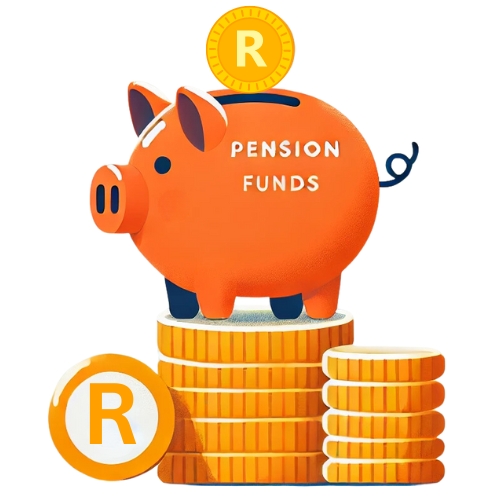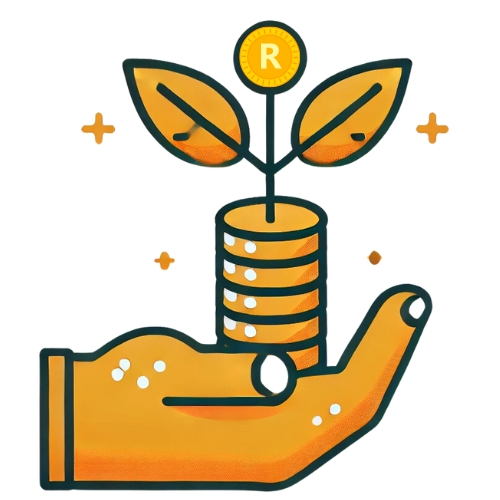
Saving for retirement in South Africa is a crucial step in ensuring a comfortable and secure future, especially given the unique economic challenges and opportunities in the country. With a variety of retirement savings options available, from government schemes to private investments, it’s important to plan and manage your finances effectively to maintain your lifestyle during your golden years. Are you ready to take the necessary steps today to secure your financial independence in retirement?
Key Takeaways
- Start Early: Starting your retirement savings early takes advantage of compound interest, which grows your savings significantly over time and reduces the need for high monthly contributions.
- Know Your Options: Familiarise yourself with South Africa’s retirement savings options, such as pension funds, provident funds, and retirement annuities, to make well-informed decisions.
- Utilise Tax Benefits: Make the most of tax-deductible contributions and tax-free growth in retirement accounts to maximise your savings and reduce your taxable income.
About Arcadia Finance
Effortlessly secure your loan with Arcadia Finance. Enjoy zero application fees and choose from 19 reputable lenders, all adhering to South Africa’s National Credit Regulator standards. Experience a seamless process with reliable options tailored to your financial needs.
Why Saving for Retirement is Important
Saving for retirement is essential for ensuring financial security and peace of mind in your later years. As life expectancy increases, having a solid financial plan that supports your lifestyle long after you stop working becomes even more important. Without sufficient savings, you might rely on government pensions or family support, which may not be enough to meet your needs.
Starting your retirement planning early allows you to benefit from compound interest, where your money grows over time, leading to a larger nest egg. The earlier you begin saving, the less you need to contribute each month to achieve your retirement goals. Furthermore, saving for retirement means you can enjoy your golden years without the worry of financial instability, letting you focus on enjoying your hard-earned leisure time. Therefore, prioritising retirement savings is a crucial step towards a secure and comfortable future.
Saving for retirement can be even more rewarding when you take full advantage of the tax incentives available. Discover how to optimise your savings by exploring the Tax Benefits for Retirement Savings, ensuring you get the most out of every rand you invest.

Retirement Options in South Africa

Pension Funds
To participate in a pension fund, you need to be employed by a company that offers this scheme. The fund’s assets are managed by trustees who make investment decisions. Both your contributions and those from your employer are tax-deductible within specified limits.
Upon retirement, you can withdraw up to one-third of your savings as a lump sum, which will be subject to tax. The remaining balance must be used to purchase an income annuity, which is also taxable. If your total retirement savings are below R247 500, you can withdraw the entire amount as a lump sum, subject to tax.
If you leave your job before retirement, you may need to transfer your retirement savings out of the company’s pension fund. You can transfer your savings to your new employer’s pension fund, a preservation fund, or a retirement annuity fund. Alternatively, you can withdraw up to one-third as a cash payout, which will be taxable. While you are a member, the growth and income in your pension fund are tax-free, with tax applied only when you withdraw funds.
If your workplace does not offer a pension fund, consider consulting a financial adviser to set up a personal retirement savings plan.
A comfortable retirement doesn’t happen by chance; it requires careful planning and disciplined savings. No matter your income level, understanding retirement planning essentials is key. Dive into Essential Factors to Consider When Planning Your Retirement Income to create a savings strategy that works for you.

Provident Fund
A provident fund, similar to a pension fund, is provided by your employer and involves contributions from both you and your employer, making membership typically mandatory. The key difference lies in the flexibility at retirement: for contributions and growth accumulated before 1 March 2021, you can withdraw the entire amount as a lump sum or choose to invest a portion in an annuity. For contributions made after 1 March 2021 (if you were under 55 on that date), you can withdraw up to one-third as a cash lump sum, while the remaining two-thirds must be invested in an annuity to provide a steady income during retirement.
Leaving the Company Before Retirement
If you leave a company before retirement, whether due to resignation or retrenchment, you will need to transfer your retirement savings from the company’s fund. Your savings can be transferred to your new employer’s fund, a preservation fund, or a retirement annuity fund.
You also have the option to take a cash payout, but be aware that this payout will be subject to tax. The growth and income within your fund while you remain a member are tax-free, with tax applied only when you withdraw your funds.
What is a Preservation Fund?
A preservation fund is a form of retirement savings scheme intended to receive lump sum payouts from a pension or provident fund when you when you leave your job before retirement. While your money is in the preservation fund, it continues to grow. You are allowed one partial or full withdrawal from the fund before age 55. After reaching age 55, you can only access the remaining balance.
Retirement planning isn’t just about saving; it’s about securing your family’s future even after you’re gone. Financial Planning With Life Insurance ensures that your loved ones are protected financially, giving you peace of mind as you enjoy your golden years.

Retirement Annuities (RA)
A retirement annuity (RA) involves making monthly contributions, typically via a debit order, independently of your employer. You have the flexibility to choose the investment funds within the parameters set by retirement fund regulations, known as Regulation 28 funds.
How Does it Work?
Upon reaching retirement at age 55 or older, you can withdraw up to one-third of your retirement annuity as a taxable lump sum. The remaining balance must be used to purchase an income annuity, which is also subject to taxation.
If your total fund value is less than R247,500, you are not limited to withdrawing only one-third of your savings; you can take the entire amount as a taxable cash lump sum.
Your retirement annuity remains unaffected by job changes, as it is not linked to your employer.
Understanding financial support options in retirement can significantly ease your planning. For those receiving SASSA pensions, exploring the best loans for SASSA pensioners provides a cushion against unforeseen expenses, ensuring your retirement savings continue to serve your everyday needs effectively.
Comparing Retirement Options in South Africa
Understanding the differences between various retirement savings options is essential for making informed decisions about your financial future.
| Feature | Pension Fund | Provident Fund | Retirement Annuity (RA) |
|---|---|---|---|
| Employer Involvement | Employer-managed and contributed | Employer-managed and contributed | Independent of employer |
| Contribution Method | Monthly payroll deductions | Monthly payroll deductions | Monthly contributions, typically via debit order |
| Investment Choices | Limited to selected funds | Limited to selected funds | Choose within Regulation 28 funds |
| Withdrawal Age | Retirement age defined by fund rules | Retirement age defined by fund rules | Age 55 or older |
| Lump Sum Withdrawal | Up to one-third of the fund value | Up to 100% of the fund value | Up to one-third of the fund value, unless total is under R247,500 |
| Taxation on Lump Sum | Taxable | Taxable | Taxable |
| Remaining Balance | Used to purchase an income annuity | Can be withdrawn as lump sum | Used to purchase an income annuity |
| Portability | Transfers to another pension fund possible | Transfers to another provident fund possible | Not affected by job changes |
| Tax Benefits on Contributions | Yes, up to certain limits | Yes, up to certain limits | Yes, up to certain limits |
| Employer Contributions | Yes | Yes | No |
| Early Withdrawal Penalties | Yes | Yes | Yes |
| Regulatory Body | Regulated by the Pension Funds Act | Regulated by the Pension Funds Act | Regulated by the Pension Funds Act |
The table below highlights key features of Pension Funds, Provident Funds, and Retirement Annuities (RAs), allowing you to compare them side by side.
Are you concerned about maintaining your lifestyle in retirement? A pensioners loan in South Africa might be the key to unlocking financial flexibility, allowing you to manage unexpected costs without compromising your savings goals.

Tax Benefits of Retirement Savings
Planning for retirement not only ensures financial security in your later years but also offers significant tax advantages. Understanding these benefits can help maximise your savings and reduce your taxable income, making retirement planning even more appealing.
- Tax Deductions on Contributions
In South Africa, contributing to retirement savings accounts such as Pension Funds, Provident Funds, and Retirement Annuities (RAs) can provide considerable tax benefits. Contributions to these accounts are tax-deductible up to a limit, currently 27.5% of the greater of your remuneration or taxable income, with a maximum cap of R350,000 per year. This means that the amount you invest in your retirement fund reduces your taxable income, potentially lowering your tax bracket and helping you save more effectively. - Tax-Free Growth and Withdrawals
Another significant benefit of retirement savings accounts is the tax-free growth they offer. The interest, dividends, and capital gains earned within these accounts are not subject to tax, allowing your investments to grow more rapidly compared to taxable investment accounts. This tax-free compounding effect can substantially enhance your retirement savings over time.
When it comes to withdrawals, retirement savings accounts also offer favourable tax treatment. Upon retirement, you are allowed to withdraw a portion of your savings as a lump sum, which is subject to tax. However, the first R500,000 of your lump sum withdrawal is tax-free, providing an additional tax benefit. The remaining balance can be used to purchase an income annuity, which is taxable, but often at a lower rate due to the reduced income in retirement.
Financial advisors play a pivotal role in navigating the complexities of retirement planning. To fully appreciate the value they provide, consider learning more about the typical Financial Advisor Cost in South Africa
How to Choose the Right Retirement Fund
Selecting the right retirement fund is a critical step in ensuring a secure financial future. With numerous options available, it’s essential to consider several factors to make an informed decision that aligns with your retirement goals.
Assessing Your Risk Tolerance
Understanding your risk tolerance is fundamental when choosing a retirement fund. Risk tolerance refers to your ability and willingness to endure fluctuations in the value of your investments. If you have a high tolerance for risk, you might be inclined towards more aggressive investments that promise higher potential returns but come with increased volatility. On the other hand, if you favour stability and are risk-averse, you might choose more conservative funds that offer steady but lower returns. Assessing your risk tolerance involves considering your financial goals, investment timeline, and personal comfort with risk.
Comparing Fund Performance
Comparing the performance of different retirement funds is crucial to making a well-informed choice. Evaluate the historical returns of each fund over various periods, such as one year, five years, and ten years. This will give you an idea of how the fund has performed in different market conditions. However, remember that past performance is not a guarantee of future results. Look for consistency in returns and consider how the fund has weathered economic downturns. Additionally, compare the performance of the fund against its benchmark index and other similar funds to assess its relative success.
Understanding Fees and Charges
Fees and charges can significantly impact the growth of your retirement savings, so it’s essential to understand the cost structure of the funds you’re considering. Common fees include management fees, administration fees, and performance fees. These costs are typically expressed as a percentage of your investment and can vary widely between funds. Even small differences in fees can compound over time and reduce your overall returns. Make sure to read the fund’s fee disclosure documents carefully and consider the value you are getting for the fees charged. Lower fees are generally preferable, but they should be balanced against the fund’s performance and the services provided.
When planning for a secure and comfortable retirement, knowing your savings potential is key. Read on How Much Savings Are You Allowed To Have? to gauge how much you should aim to save to ensure a worry-free retirement.

Common Mistakes to Avoid
When planning for retirement, it’s crucial to be aware of common pitfalls that can jeopardise your financial security. Avoiding these mistakes can help ensure that your retirement savings are on track and optimised for your future needs.
- Delaying Your Savings Plan: One of the biggest mistakes is postponing your retirement savings. Beginning to save at an early age allows your money more time to grow due to the benefits of compound interest. Even small contributions made sooner can amass substantially over the years.
- Withdrawing Funds Prematurely: Dipping into your retirement savings before you retire can be detrimental to your long-term financial health. Early withdrawals often come with hefty penalties and taxes, and they reduce the amount of money available to grow for your future needs.
- Underestimating Healthcare Costs: Healthcare expenses can be substantial in retirement, and many people underestimate these costs. It’s crucial to plan for potential medical expenses by considering healthcare insurance and setting aside additional funds specifically for this purpose.
- Not Diversifying Investments: Putting all your money into one type of investment can be risky. Diversifying your retirement portfolio across different asset classes, such as stocks, bonds, and property, can help mitigate risks and improve the overall stability of your investments.
- Failing to Regularly Review and Adjust Your Plan: Your financial situation and goals may change over time, so it’s important to regularly review and adjust your retirement plan. Conducting annual reviews with a financial adviser can help ensure your savings strategy remains aligned with your objectives.
- Overlooking Tax Implications: Taxes can have a significant impact on your retirement savings. Be mindful of the tax benefits of different retirement accounts and plan your withdrawals strategically to minimise tax liabilities.
Planning for retirement often involves safe and steady investments. Government bonds can be a cornerstone of such a strategy. To understand how you can utilize them in your retirement planning, visit our detailed article on How to Buy Government Bonds in South Africa.
Conclusion
Saving for retirement in South Africa is not just a financial necessity but a key step towards ensuring a secure and comfortable future. By understanding the various investment options, taking advantage of tax benefits, and starting your savings journey early, you can build a substantial nest egg to support you throughout your retirement years. Prioritising regular contributions and seeking professional financial advice can help you navigate the complexities of retirement planning, allowing you to enjoy your golden years with peace of mind and financial independence.
Frequently Asked Questions
The amount needed to retire at 55 in South Africa varies based on your lifestyle, healthcare needs, and inflation. A general guideline is to save at least 15 to 20 times your annual expenses. For example, if you anticipate spending R300,000 per year, you should aim to have between R4.5 million and R6 million saved by retirement.
There is no mandatory retirement age in South Africa, allowing individuals to retire based on their financial situation and personal preferences. However, the official retirement age for accessing certain benefits, such as the state pension, is 60 for women and 65 for men.
Effective from 1 March 2021, the new law allows individuals to withdraw a portion of their retirement savings upon emigration. This offers more flexibility but requires careful consideration due to tax implications and long-term financial planning.
The amount needed for a comfortable retirement depends on individual circumstances, including lifestyle and healthcare needs. Financial experts generally recommend having enough savings to replace 70% to 80% of your pre-retirement income annually, which usually means saving 15 to 20 times your annual expenses by retirement.
To maximise your retirement savings, start saving early and utilise employer-sponsored retirement funds and tax benefits. Regularly review and adjust your investment strategy to meet your retirement goals, and consider a diversified portfolio to manage risk. Consulting a financial planner can also help tailor a retirement plan to your specific needs.
Fast, uncomplicated, and trustworthy loan comparisons
At Arcadia Finance, you can compare loan offers from multiple lenders with no obligation and free of charge. Get a clear overview of your options and choose the best deal for you.
Fill out our form today to easily compare interest rates from 19 banks and find the right loan for you.


